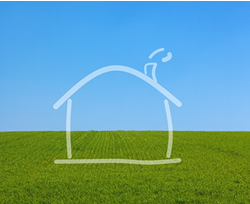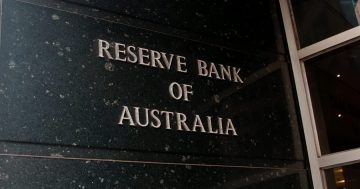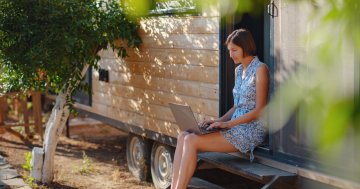Jemimah Clegg* says the pandemic-induced growth in youth unemployment will likely impact Gen Z’s ability to become home owners.
 When the country’s oldest Millennials were in their twenties, Australia saw its first economic downturn since those same young adults were in primary school.
When the country’s oldest Millennials were in their twenties, Australia saw its first economic downturn since those same young adults were in primary school.
Australia managed to avoid a recession after the Global Financial Crisis (GFC) in 2008, but the economy took a hit, and young people bore the brunt of it.
The COVID-19 pandemic is likely to have a similar, if not worse, impact on young adults today, who will face a tough labour market for some time — making it even harder to save for their own home.
Getting on to the property ladder was already tough for older Millennials, but for younger Millennials and Generation Z, who may find it harder to get a job or earn good salaries — and whose parents have less home equity — challenges lie ahead.
After the GFC, graduate and entry-level jobs were harder to come by.
As those first Millennials hit their thirties, house prices in Sydney and Melbourne soared.
Meanwhile, wage growth stagnated, dropping below 2 per cent in 2016, and struggling to push past 2.3 per cent by the end of last year.
Many gave up on the great Australian dream, resigning themselves to a life of renting.
Home ownership rates among 30 to 34-year-olds fell to 50 per cent in 2016.
When their parents were the same age, around 60 to 70 per cent of them owned a home, according to Australian Bureau of Statistics (ABS) data.
The effects of the GFC on the financial wellbeing of 1980s babies are ongoing, Indeed Chief Economist, Callam Pickering says.
He says the impact of recessions and severe downturns for young people tends to persist a lot longer than for other groups in society.
The COVID-19 pandemic could mean the youngest Millennials (now in their mid to late-twenties) and Gen Z (born between 1995 and 2009) find it even more difficult to find — and keep — a job.
Young people have been disproportionately affected by COVID-19 job losses — more than 200,000 people aged 15 to 24 became unemployed in April, accounting for 36 per cent of the job losses in that month.
The industries hardest hit by COVID-19 shutdowns are also those in which younger people are likely to be employed, Deloitte Access Economics partner and economist David Rumbens says, including hospitality, events, retail and tourism.
“It’s no surprise that we’ve seen higher unemployment to date among younger-aged cohorts,” Rumbens says.
“Unemployment goes up — but youth unemployment goes up by more.”
The overall unemployment rate rose to 6.2 per cent in April, while the youth unemployment rate hit 13.8 per cent — on the way to matching, and experts say surpassing, the highs seen after the GFC.
Prior to 2008, the university graduate employment rate was at a high of 85.2 per cent, according to the Federal Government’s Graduate Outcomes Survey, and by 2014 it had hit a low of 68.1 per cent.
In 2019 it had improved marginally to 72.2 per cent.
There are fewer graduate jobs going around during economic downturns, Mr Rumbens says, mainly because businesses don’t like laying off staff.
“As much as possible they will retain their existing staff, but it means that there’s little room for expansion,” he says.
A typical tale is Baby Boomer parents with equity up the wazoo lending their priced-out Millennial kids a hand, either in the form of cash towards a deposit or by going guarantor on a loan — otherwise known as “The Bank of Mum and Dad”.
But it’s not exactly an equitable system, Grattan Institute economist Brendan Coates says, as those with wealthier parents are able to more quickly afford their own house, and those whose parents don’t own property are less likely to enter the housing market.
“Increasingly, your ability to buy a house depends more on who your parents are than what income and savings you have yourself,” Mr Coates says.
The parents of Gen Z may not have the same level of equity in their homes as the Boomers before them, he says.
“Fewer Gen Xers own their own homes than older generations, but a lot of Gen Xers will inherit the homes of their parents,” Mr Coates says.
He says despite a predicted 5 to 10 per cent fall in house prices, record-low interest rates will see demand for housing remain relatively strong, eventually bolstering the housing market once more.
“We didn’t see a boost in home ownership among younger Australians during the GFC, I think that’s the best yardstick — housing affordability got worse after that, not better.”
If saving money is the biggest challenge first-home buyers face, low interest rates don’t do much to help would-be buyers build their nest egg, Customer Owned Banking Association CEO, Michael Lawrence says.
“The standard for banks is they want a 20 per cent deposit, which can be very challenging, particularly when you’re in a very low interest rate environment,” Mr Lawrence says.
“At the same time, you might be faced with a property market that is actually increasing, so potentially your deposit savings may not be keeping pace with what the property market is doing.”
Mr Coates says first-home buyer schemes, stamp duty concessions and government grants have long been touted as a solution to housing affordability woes, but inevitably just wind up putting more money in vendors’ pockets.
“It’s hard to think of a set of policy descriptions that have been tried so frequently, with such little success for so long,” he says.
He says to truly make it easier for young people to buy property, there needs to be enough suitable housing in the inner and middle suburbs, and significant changes to the tax system.
“For first-home buyers to win, someone has to lose,” he says.
* Jemimah Clegg covers housing news for Domaincomau. She tweets at @JemimahClegg.
This article first appeared at www.domain.com.au.











